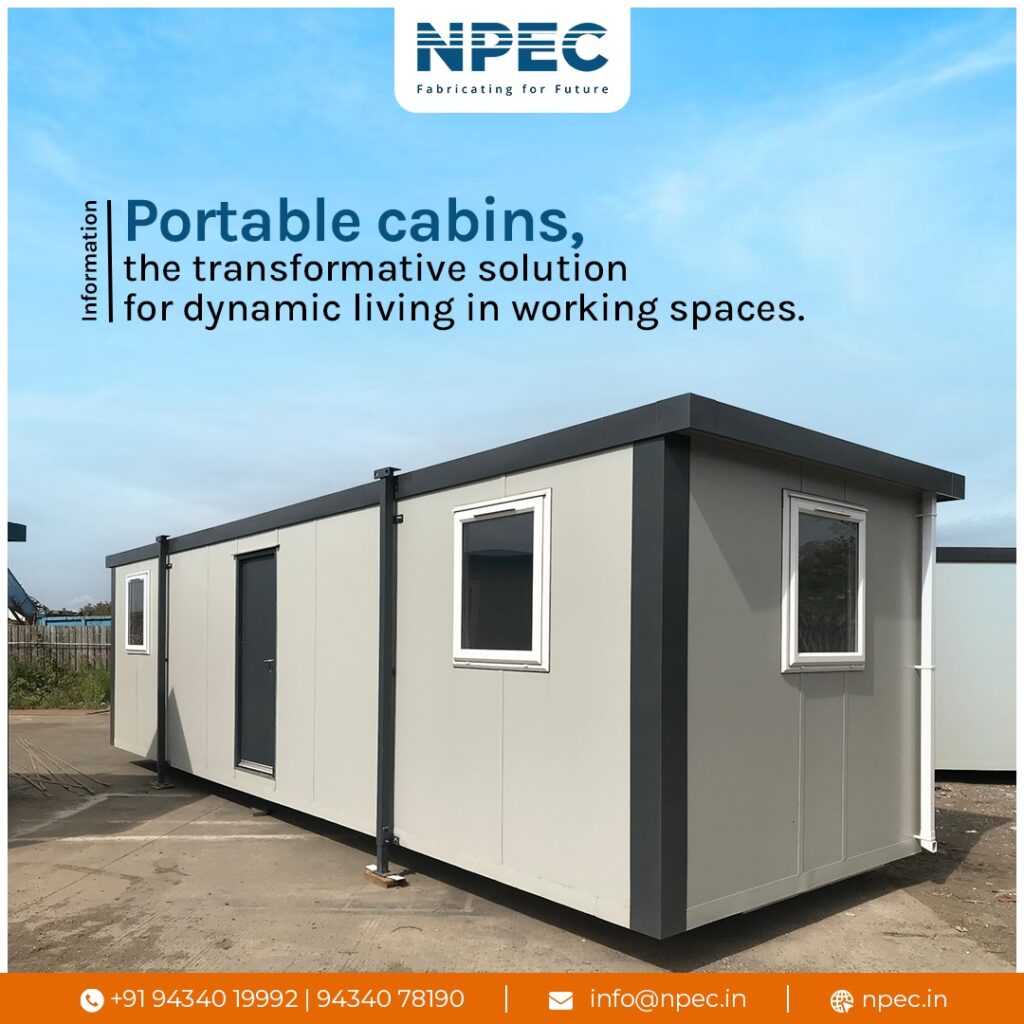A portable cabin, often referred to as a mobile or modular cabin, is a versatile and convenient solution for temporary or permanent accommodation needs. These structures are designed to be easily transported and relocated, making them an ideal choice for various applications such as temporary housing, offices, construction sites, and recreational purposes. Here’s a detailed look into the concept, benefits, and considerations of portable cabins:

Table of Contents
Overview
Portable cabins are prefabricated structures typically built off-site and then transported to their intended location. They come in various sizes and configurations, from small single-room units to larger multi-room setups. The construction materials and design can vary based on the intended use and environmental conditions.
Construction and Design
Materials: Portable cabins are usually constructed from durable materials to withstand transportation and different environmental conditions. Common materials include:
- Steel: Provides structural strength and durability, often used for the frame and roofing.
- Wood: Offers aesthetic appeal and natural insulation properties.
- Composite Materials: Modern materials like fiberglass and reinforced plastic can be used for lightweight and weather-resistant options.
Design Features:
- Modular Design: Many portable cabins are modular, allowing for customization and expansion. Modules can be added or removed based on needs.
- Insulation: Proper insulation is crucial for comfort and energy efficiency. Options include foam panels, fiberglass, and reflective materials.
- Utilities: Portable cabins can be equipped with essential utilities such as electricity, plumbing, and heating/cooling systems.
- Interior Layout: The interior can be customized with features like partition walls, flooring, and fixtures to suit various functions, from residential to office use.
Benefits
Flexibility: One of the primary advantages of portable cabins is their flexibility. They can be relocated with relative ease, making them ideal for temporary setups or changing locations. This feature is particularly useful for construction companies, event organizers, and emergency housing providers.
Cost-Effectiveness: Compared to traditional buildings, portable cabins often have lower construction and maintenance costs. They can be a more affordable option for short-term needs or as supplementary space.
Speed of Installation: Portable cabins are prefabricated off-site, which means they can be quickly assembled and put into use once delivered. This speed is advantageous for projects with tight deadlines or urgent requirements.
Environmental Impact: Modern portable cabins are often designed with sustainability in mind. They can be built with eco-friendly materials and include energy-efficient systems, reducing their overall environmental footprint.
Applications
Temporary Housing: Portable cabins are commonly used for temporary housing solutions in areas affected by natural disasters or during construction projects. They provide immediate shelter and can be outfitted with all necessary amenities.
Office Space: Businesses often use portable cabins as temporary or permanent office spaces. They offer a quick and cost-effective solution for expanding office capacity or setting up remote workstations.
Recreational Use: Portable cabins are also popular for recreational purposes, such as vacation homes or camping cabins. They can be situated in scenic locations and offer a comfortable and private retreat.
Construction Sites: On construction sites, portable cabins serve as site offices, storage units, or break rooms for workers. Their mobility allows them to be moved as needed throughout the duration of a project.
Considerations
Regulations and Permits: Depending on the location, there may be regulations and permits required for placing and using portable cabins. It’s important to check with local authorities to ensure compliance with zoning laws and building codes.
Site Preparation: While portable cabins are designed for mobility, the site where they are placed should be prepared to ensure stability and proper drainage. This may involve leveling the ground and providing a suitable foundation.
Maintenance: Portable cabins require regular maintenance to ensure their longevity and functionality. This includes checking for any wear and tear, ensuring that utilities are functioning properly, and addressing any weather-related issues.
Resale Value: If a portable cabin is no longer needed, it can often be sold or repurposed, though its resale value will depend on its condition and market demand.
Conclusion
Portable cabins offer a versatile and practical solution for a wide range of needs, from temporary housing to permanent office spaces. Their flexibility, cost-effectiveness, and speed of installation make them an attractive option for various applications. By considering factors such as materials, design, and regulatory requirements, individuals and businesses can effectively utilize portable cabins to meet their specific needs.
